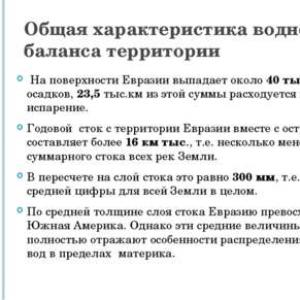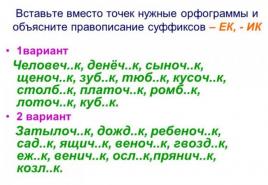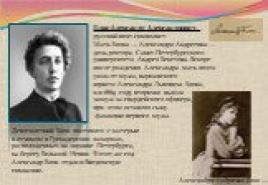Article 101 of the tk rf irregular working hours. Labor Code irregular working hours
Irregular working hours - a special mode of work, according to which individual employees can, by order of the employer, if necessary, be occasionally involved in the performance of their labor functions outside the established working hours. The list of positions of employees with irregular working hours is established by a collective agreement, agreements or a local normative act adopted taking into account the opinion of the representative body of employees.
An employee who works on a part-time basis may be assigned an irregular working day only if by agreement of the parties to the employment contract a part-time working week is established, but with a full working day (shift).
Commentary on Art. 101 of the Labor Code of the Russian Federation
1.Taking into account the range and volume of duties performed by certain categories of workers under an employment contract, it is possible to occasionally attract such workers to work in excess of the duration of working hours established for them, which is not overtime work.
2. The list of positions of employees with irregular working hours is established by collective agreement or by a local normative act, adopted taking into account the opinion of the representative body of employees.
Second commentary on Article 101 of the Labor Code
1. For certain categories of employees, an irregular working day may be established, in which it is allowed to perform work in excess of the established duration of the working day. However, work performed is not considered overtime.
2. Irregular working hours can be applied to persons of administrative, managerial, technical and economic personnel; persons whose work cannot be counted in time; persons who allocate time at their own discretion; persons whose working time is divided by the nature of the work into parts of an indefinite duration.
3. Lists of categories of workers with irregular working hours are developed by the employer taking into account the opinion of the elected trade union body (or other body authorized by employees) and are included in the text of the collective agreement, agreement or other local act of the organization.
4. Drivers of cars (except for taxi cars), as well as drivers of vehicles of expeditionary and survey parties engaged in geological exploration, topographic-geodetic and survey work in the field, may be assigned irregular working hours.
The decision to establish irregular working hours is made by the employer, taking into account the opinion of the representative body of the employees of the organization.
The number and duration of work shifts according to work schedules (shift shifts) with irregular working days are established based on the normal duration of the working week, and days of weekly rest are provided on a general basis (Order of the Ministry of Transport of the Russian Federation of August 20, 2004 N 15).
5. Work with irregular working hours is compensated by providing additional paid leave of at least three calendar days or (with the consent of the employee) as overtime work (see the commentary to Article 119 of the Labor Code of the Russian Federation).
The list of employees working with irregular working hours, as well as the duration of the said leave, is determined by the collective agreement.
Irregular working hours
1. Under an irregular working day, the legislator understands a special mode of work, the establishment of which is possible not for everyone, but only for certain categories of workers.
In this regard, the use of the irregular working day regime is preceded by the development and adoption of an appropriate list of employee positions. The list of positions of employees with irregular working hours can be included in the text of a collective agreement, agreement, or approved in the form of an independent local regulatory act. Therefore, the procedure for approving the list can be both contractual (when concluding a collective agreement, agreement), and the character established by the legislator for local regulations adopted taking into account the opinion of the representative body of employees.
2. The commented article does not name specific legal grounds for attracting employees, whose positions are listed in the specified list, to work on irregular working hours. A certain explanation of the employer's application of his right is the provision of the article that the employee's labor function can be performed outside the established working hours for him. At the same time, the employer must have objective reasons that determine the need for the employee to perform the labor function after the end of the working day. These reasons or grounds should be of an ad hoc nature, for example, the need to complete a negotiation procedure in which the employer is a party.
At the same time, the episodic nature of attracting workers to work after the end of the working day indicates that it is difficult to plan or foresee the need for such work in advance, although in some cases its probability is quite obvious (for example, drawing up quarterly, annual reports; increasing the volume of orders for seasonal products).
The list of positions of employees with irregular working hours is determined by the employer independently. When compiling it, the scope of activity, the nature of the work of employees, the timeliness of fulfilling the obligations assumed and all other circumstances that contribute to the effective work of the organization are taken into account.
3. The Government of the Russian Federation gives a detailed list of such positions in relation to organizations financed from the federal budget:
Management, technical and economic personnel and other persons whose work during the working day cannot be accurately recorded;
Persons who distribute working hours at their own discretion;
Persons whose working hours, by the nature of their work, are divided into parts of indefinite duration (see clause 3 of the Rules for granting annual additional paid leave to employees with irregular working hours in organizations funded from the federal budget, approved by Decree of the Government of the Russian Federation of 11.12.2002 N 884).
The inclusion in the list of positions of workers with irregular working hours of those whose work does not lend themselves to accurate accounting in time, or those who distribute the work time at their own discretion, means that they can independently decide the issue of working outside the normal working hours, if it is defined by job descriptions or local regulations. In this situation, work on irregular working hours is carried out on the initiative of the employee himself, i.e. a preliminary order of the head of the organization to involve him in such work is not required.
4. Familiarization of the employee with the local regulations of the organization, directly related to his labor activity, the collective agreement before concluding an employment contract, against signature, means that he is aware of his obligation to work on irregular working hours. In other words, the use of irregular working hours does not require the receipt (every time) of the employee's prior consent, if his position is indicated in the list and he knows it.
5. The irregular working day regime covers all employees of the organization, whose positions are indicated in the list. There are no restrictions on the use of labor by pregnant women, disabled women, women with children under the age of three years (unless such work is prohibited for them for medical reasons).
As for employees under the age of 18, Art. 268 of the Labor Code it is prohibited to involve them in overtime work, to work on weekends and non-working holidays. Therefore, it should be recognized that they cannot be involved in work with irregular working hours.
6. Using the irregular working day regime, the employer is not entitled to entrust the employee with the performance of work not determined by his labor function.
7. Regarding certain categories of employees, the irregular working day regime is established by subordinate normative legal acts. So, in the Regulations on the peculiarities of the working hours and rest hours of car drivers, it is indicated that drivers of passenger cars (except for taxi cars), as well as drivers of expedition vehicles and survey parties involved in exploration, topographic and geodetic and survey work in the field, irregular working hours can be established (clause 14).
In the Regulations on the specifics of the working hours and rest hours, working conditions of certain categories of workers rail transportdirectly related to the movement of trains, it is established that railway workers can be set to work with irregular working hours, with the exception of workers serving passenger trains, train electromechanics, as well as chiefs, mechanics-foremen of passenger trains who are not on shift duty, working the time of which is determined in the same way as for the conductors of the passenger carriages of the train (clause 37).
8. For work with irregular working hours, an additional annual paid leave is granted as compensation (see the commentary to Art. 119).
Part 4 of Art. 45 of the Law on the State Civil Service, it is established that if additional paid leave is not granted to a civil servant who has an irregular working day, with the written consent of the civil servant, the performance of his official duties outside the normal duration of his service time is paid as overtime.
9. For workers with irregular working hours, the norms on the duration of work, shift (Article 94 of the Labor Code of the Russian Federation), on overtime work (Article 99 of the Labor Code of the Russian Federation), on the prohibition of work on weekends and non-working holidays (Article 113 of the Labor Code RF), etc.
10. Duty should be distinguished from work with irregular working hours. An employee with irregular working hours may also be involved in shifts at the end of the working day. During the period of duty, the employee does not perform his labor function, he is involved in work to take measures in order to resolve urgent issues arising from the employer, to ensure control over the observance of the proper order in the organization (see Resolution of the All-Union Central Council of Trade Unions Secretariat dated 02.04.1954 No. 233 "On duty at enterprises and institutions ").
Irregular working day is a special mode of work, according to which individual employees can, by order of the employer, if necessary, occasionally be involved in the performance of their labor functions outside the established working hours. The list of positions of employees with irregular working hours is established by a collective agreement, agreements or a local regulatory act, adopted taking into account the opinion of the representative body of employees.
An employee who works on a part-time basis may be assigned an irregular working day only if by agreement of the parties to the employment contract a part-time working week is established, but with a full working day (shift).
Comments to Art. 101 of the Labor Code of the Russian Federation
1. The commented article discloses the concept of "irregular working hours" and indicates that the list of positions of employees with such a working day is established by a collective agreement, agreements or a local normative act adopted taking into account the opinion of the representative body of employees. For the first time at the legislative level, the article reveals the main features of this type of working day: work on the orders of the employer outside the normal working hours.
2. The irregular working day, as indicated in the commented article, is established for certain categories of workers with special working conditions, when, due to production needs on certain days of the week, they are allowed to perform work in excess of the normal working day, as a rule, without additional payment or compensation in the form time off. Therefore, irregular working hours are introduced for certain categories of workers who usually occupy managerial positions in the organization, and for specialists whose work cannot be tracked in time. For example, on November 1, 2007, the Board of the Pension Fund of the Russian Federation adopted Resolution N 274p "On approval of the list of positions of employees of the PFR system with irregular working hours and the establishment of the duration of additional annual paid leave for employees of the PFR system."
However, these workers are subject to the general rules regarding start and end times. Overtime work is not considered overtime and therefore is not subject to higher pay. Compensation for overworking on certain days of the week in excess of the established working day is provided in the form of additional paid leave. The procedure for granting such leave is determined in local regulations or in an employment contract when hiring, since an irregular working day is one of the working conditions for these workers (Article 119 of the Labor Code).
The establishment of irregular working hours does not mean that these workers are not subject to the basic provisions of labor legislation on the norms of working hours and rest time. Therefore, recruitment to work outside the normal working hours cannot be systematic.
3. When attracting an employee to work outside the normal working day, consent is not required from him, since this issue is negotiated when concluding an employment contract.
Some regulations establish that irregular working hours are introduced for certain categories of employees, for example, for drivers of cars, except for taxi drivers (Regulation on the specifics of working hours and rest hours for car drivers approved by Order of the Ministry of Transport of Russia dated August 20, 2004 N 15 ).
4. In the letter of the Federal Service for Labor and Employment of June 7, 2008 N 1316-6-1 "On work in irregular working hours" states that in accordance with Art. 101 of the Labor Code, irregular working hours - a special mode of work, according to which individual employees can, by order of the employer, if necessary, be occasionally involved in the performance of their labor functions outside the established working hours.
An employee can be involved in the performance of his labor functions both before the beginning of the working day (shift) and after the end of the working day (shift).
From Art. 119 of the Labor Code in the new edition, the rule is excluded that if the employer does not provide additional leave for using the employee in the irregular working day mode, overworking in excess of the normal working hours with the employee's written consent is compensated as overtime work.
Thus, the Labor Code does not recognize overtime in the case of irregular working hours as overtime work, in which certain guarantees must be observed (for example, limitation of overtime hours, additional pay), and Art. 97 of the Labor Code, which provides for the possibility of processing in two cases (for overtime work and for work in conditions of irregular working hours), actually confirms this. In other words, for work in the regime of irregular working hours, compensation is provided only in the form of additional leave, the duration of which is determined by the collective agreement or the internal labor regulations and cannot be less than 3 calendar days.
At the same time, the introduction of irregular working hours for workers does not mean that they are not subject to the rules that determine the start and end times of work, the procedure for recording working hours, etc. These employees are exempted from work on weekly rest days and holidays on a general basis.
Thus, the attraction of employees who have an irregular working day to work on their weekends and non-working holidays should be carried out using the provisions of Art. Art. 113 and 153 TC.
It should also be borne in mind that the recruitment of workers to work outside the established working hours for them should not be systematic, but should occur from time to time (sporadically) and in certain cases.
The full text of Art. 101 of the Labor Code of the Russian Federation with comments. New current edition with additions for 2020. Legal advice on Article 101 of the Labor Code of the Russian Federation.
Irregular working day is a special mode of work, according to which individual employees can, by order of the employer, if necessary, occasionally be involved in the performance of their labor functions outside the established working hours. The list of positions of employees with irregular working hours is established by a collective agreement, agreements or a local regulatory act, adopted taking into account the opinion of the representative body of employees.
Commentary on Article 101 of the Labor Code of the Russian Federation
The legislator singled out irregular working hours as a special mode of work. Let's try to highlight the main features of such a mode of operation.
Firstly, only individual workers can be involved in such a mode of work, and not the entire work collective. At the same time, it is taken into account that some categories of workers, in accordance with the provisions of the labor legislation of Russia, cannot at all be involved in performing work in the regime of irregular working hours. We are talking about workers under the age of 18, people with disabilities, persons with family obligations, etc.
Secondly, the possibility of attracting employees to perform their official duties in the regime of irregular working hours is carried out on the basis of the appropriate order of the employer. The head of the organization should issue an appropriate order or order on attracting specific employees to work on irregular days, indicating the period of such work. The relevant categories of workers are subject to familiarization with the specified order or instruction in writing. Note that sometimes employees are involved in such work on the basis of an oral order. On the one hand, this is not a violation, since the commented article does not indicate the need for a written order. On the other hand, without a written instruction or order, the employee has no reason to further insist on the provision of additional days for rest or payment for work in the regime of irregular working hours.
Thirdly, the legislator has established that engaging in work in the regime of irregular working hours is possible when there is a production need and occasionally. The first factor means that the work is caused by some additional volume of work arising from the seasonality of the work performed, a failure in any system, and for other reasons that are not stable for this type of organization. The second factor points to the temporary, one-time nature of attracting workers to perform work in the regime of irregular working hours, the absence of a tendency towards regularity.
The fourth feature is the duration of the work. In the event that individual employees are involved in the performance of their official duties in excess of the established standard of time, it is necessary to take into account what working time schedule for such an employee is normal.
The provisions of the commented article stipulate that the list of workers for whom irregular working hours can be established must be determined by a collective agreement, an agreement between the employee and the employer, or the LNA. The listed documents should be accepted taking into account the opinion of the representative body of workers. Note that the last provision is of little use at present and practically does not work, since commercial structures sometimes lack such a body. In addition, in commercial organizations, where the total number of employees does not exceed 3-5 people, it is generally not possible to create an appropriate body.
Another comment on Art. 101 of the Labor Code of the Russian Federation
1. The peculiarity of the irregular working day regime lies in the fact that an employee can, by order of the employer, perform his labor duties outside the working hours established for him in accordance with the Labor Code, other federal laws and other regulatory legal acts of the Russian Federation, collective bargaining agreements, agreements, local regulations, employment contract. Such revisions are allowed only if necessary and should not be systematic, but episodic.
2. The procedure for applying the irregular working day regime in organizations financed from the federal budget is governed by the Rules for granting annual additional paid leave to employees with irregular working hours in organizations funded from the federal budget, approved. Decree of the Government of the Russian Federation of December 11, 2002 N 884. The list of positions of employees with irregular working hours is established by the internal labor regulations or other regulations of the organization.
The list of positions of employees with irregular working hours includes managerial, technical and economic personnel, as well as other persons: a) whose work during the working day cannot be accurately recorded; b) who distribute working time at their own discretion; c) the working time of which, by the nature of the work, is divided into parts of an indefinite duration.
The specified list can serve as a guideline for other employers when preparing the relevant sections of the collective agreement or local regulation.
3. Compensation for overtime in case of irregular working hours is carried out not according to the rules relating to overtime work, but by granting additional leave (see Art. 119 of the Labor Code and the commentary to it).
Legal advice and comments on Article 101 of the Labor Code of the Russian Federation
If you still have questions about Article 101 of the Labor Code of the Russian Federation and you want to be sure of the relevance of the information provided, you can consult the lawyers of our website.
You can ask a question by phone or on the website. Initial consultations are held free of charge from 9:00 to 21:00 daily Moscow time. Questions received from 21:00 to 9:00 will be processed the next day.
Irregular working day is a special mode of work, according to which individual employees can, by order of the employer, if necessary, occasionally be involved in the performance of their labor functions outside the established working hours. The list of positions of employees with irregular working hours is established by a collective agreement, agreements or a local regulatory act, adopted taking into account the opinion of the representative body of employees.
An employee who works on a part-time basis may be assigned an irregular working day only if by agreement of the parties to the employment contract a part-time working week is established, but with a full working day (shift).
Comments to Art. 101 of the Labor Code of the Russian Federation
1. The commented article discloses the concept of "irregular working hours" and indicates that the list of positions of employees with such a working day is established by a collective agreement, agreements or a local normative act adopted taking into account the opinion of the representative body of employees. For the first time at the legislative level, the article reveals the main features of this type of working day: work on the orders of the employer outside the normal working hours.
2. The irregular working day, as indicated in the commented article, is established for certain categories of workers with special working conditions, when, due to production needs on certain days of the week, they are allowed to perform work in excess of the normal working day, as a rule, without additional payment or compensation in the form time off. Therefore, irregular working hours are introduced for certain categories of workers who usually occupy managerial positions in the organization, and for specialists whose work cannot be tracked in time. For example, on November 1, 2007, the Board of the Pension Fund of the Russian Federation adopted Resolution N 274p "On approval of the list of positions of employees of the PFR system with irregular working hours and the establishment of the duration of additional annual paid leave for employees of the PFR system."
However, these workers are subject to the general rules regarding start and end times. Overtime work is not considered overtime and therefore is not subject to higher pay. Compensation for overworking on certain days of the week in excess of the established working day is provided in the form of additional paid leave. The procedure for granting such leave is determined in local regulations or in an employment contract when hiring, since an irregular working day is one of the working conditions for these workers (Article 119 of the Labor Code).
The establishment of irregular working hours does not mean that these workers are not subject to the basic provisions of labor legislation on the norms of working hours and rest time. Therefore, recruitment to work outside the normal working hours cannot be systematic.
3. When attracting an employee to work outside the normal working day, consent is not required from him, since this issue is negotiated when concluding an employment contract.
Some regulations establish that irregular working hours are introduced for certain categories of employees, for example, for drivers of cars, except for taxi drivers (Regulation on the specifics of working hours and rest hours for car drivers approved by Order of the Ministry of Transport of Russia dated August 20, 2004 N 15 ).
4. In the letter of the Federal Service for Labor and Employment of June 7, 2008 N 1316-6-1 "On work in irregular working hours" states that in accordance with Art. 101 of the Labor Code, irregular working hours - a special mode of work, according to which individual employees can, by order of the employer, if necessary, be occasionally involved in the performance of their labor functions outside the established working hours.
An employee can be involved in the performance of his labor functions both before the beginning of the working day (shift) and after the end of the working day (shift).
From Art. 119 of the Labor Code in the new edition, the rule is excluded that if the employer does not provide additional leave for using the employee in the irregular working day mode, overworking in excess of the normal working hours with the employee's written consent is compensated as overtime work.
Thus, the Labor Code does not recognize overtime in the case of irregular working hours as overtime work, in which certain guarantees must be observed (for example, limitation of overtime hours, additional pay), and Art. 97 of the Labor Code, which provides for the possibility of processing in two cases (for overtime work and for work in conditions of irregular working hours), actually confirms this. In other words, for work in the regime of irregular working hours, compensation is provided only in the form of additional leave, the duration of which is determined by the collective agreement or the internal labor regulations and cannot be less than 3 calendar days.
At the same time, the introduction of irregular working hours for workers does not mean that they are not subject to the rules that determine the start and end times of work, the procedure for recording working hours, etc. These employees are exempted from work on weekly rest days and holidays on a general basis.
Thus, the attraction of employees who have an irregular working day to work on their weekends and non-working holidays should be carried out using the provisions of Art. Art. 113 and 153 TC.
It should also be borne in mind that the recruitment of workers to work outside the established working hours for them should not be systematic, but should occur from time to time (sporadically) and in certain cases.







